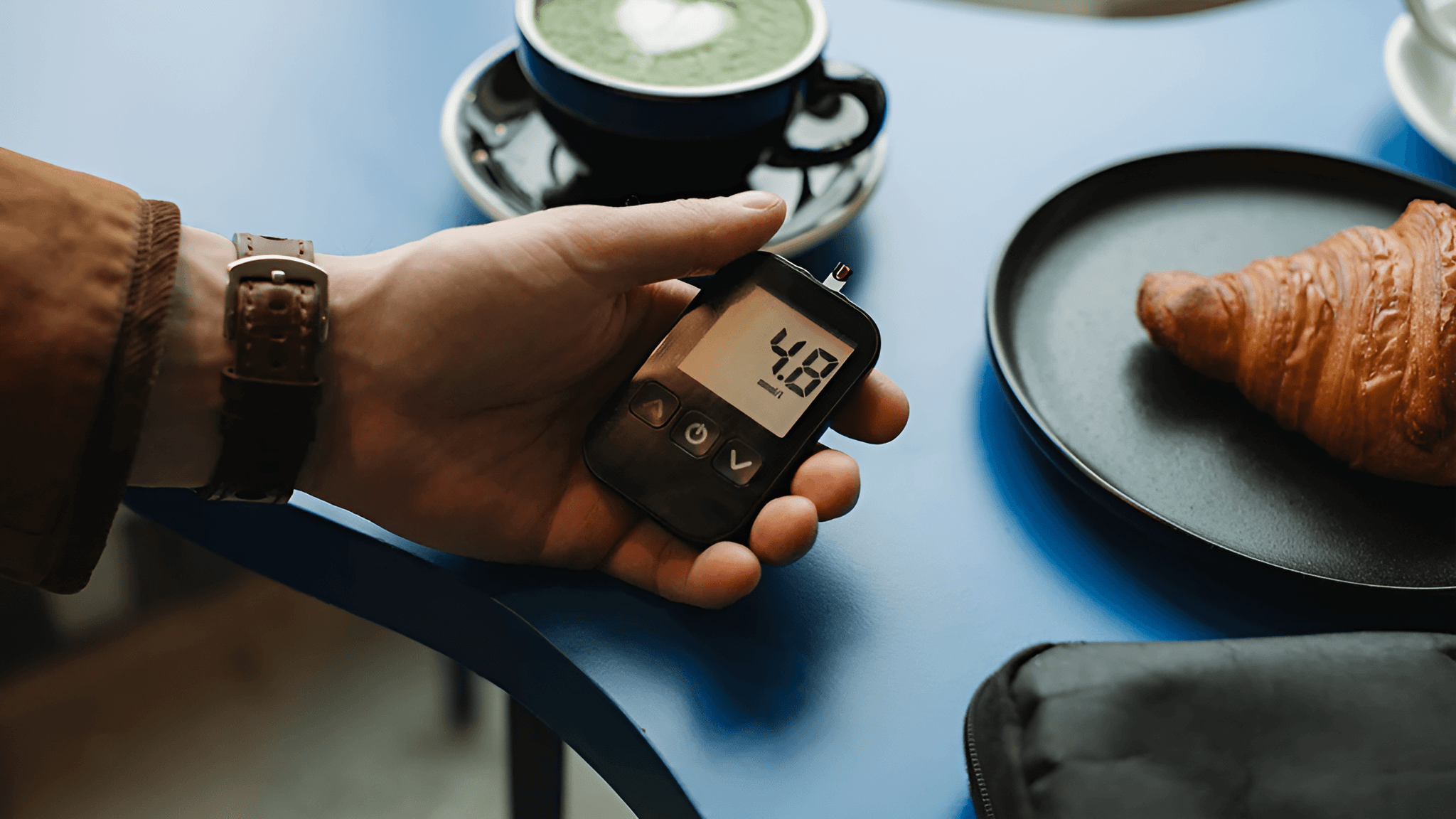Good blood circulation is essential for overall health and vitality. Alongside traditional means, there are also many vitamins for better blood circulation. It ensures that your organs and tissues receive the oxygen and nutrients they need to function properly. Improved blood circulation can sharpen your mind, reduce the risk of erectile dysfunction, and keep your body in top shape.
Poor circulation often manifests in the extremities, causing symptoms like coldness, numbness, tingling, and even a bluish tinge in severe cases. While these symptoms can indicate underlying cardiovascular issues, you can take proactive steps to improve your circulation naturally, starting with essential vitamins.
In addition to vitamins, botanicals like Ginkgo + Ginseng for circulation have been shown to enhance nitric oxide signaling, helping blood vessels relax and improving blood flow naturally.
Table of Contents
Vitamins for Optimal Blood Circulation
So, what vitamin is good for blood circulation? Several vitamins play a key role in supporting healthy blood flow and cardiovascular function:
1. B Vitamins: The Circulation Superstars
When it comes to vitamins for blood circulation, the B vitamins are true standouts. Each B vitamin has unique functions, but several are particularly important for circulatory health.
- Vitamin B12: B12 is essential for the production of healthy red blood cells, which carry oxygen throughout your body [1]. Without adequate B12, your cells may not receive the oxygen they need for optimal function.
- Vitamin B6: B6 helps regulate homocysteine levels in the body. High homocysteine levels have been linked to an increased risk of cardiovascular disease [2].
- Niacin (Vitamin B3): Niacin directly supports blood vessel health by reducing inflammation and lowering bad cholesterol levels [3]. This helps protect against atherosclerosis (hardening of the arteries) and improves overall circulation.
B-vitamins also had an honorable mention as some of the best vitamins for energy.
2. Vitamin D: The Circulation Support Hormone
While often called a vitamin, vitamin D actually functions as a hormone in the body. It’s crucial for various processes, including blood circulation.
- Regulating Blood Vessel Function: Vitamin D helps regulate the flow of substances between blood vessels and cells, supporting healthy blood vessel function and relaxation [5].
- Blood Pressure Control: Vitamin D can reduce levels of angiotensin, a hormone that constricts blood vessels and raises blood pressure [6]. Lower angiotensin levels contribute to lower blood pressure and reduced inflammation.
- Erectile Dysfunction: Studies have shown a link between vitamin D deficiency and erectile dysfunction in men [4]. Circulation has a major role to play in a healthy sex life for both men and women as covered in our article on best sex health supplements.
We covered how vitamin D supports circulation more in our Vitamin D for Energy article.
3. Vitamin E: Protecting Your Cardiovascular System
Vitamin E is a powerful antioxidant and anti-inflammatory agent that offers numerous benefits for cardiovascular health.
- Improved Blood Flow: Vitamin E helps improve blood flow and protects against arteriosclerosis (hardening of the arteries) [7]. Arteriosclerosis can increase the risk of heart attack and stroke.
On a cellular level, nutrients like CoQ10 for heart energy support mitochondrial efficiency in cardiac cells, fueling strong, consistent heartbeats for better overall circulation.
Vitamin C is likewise also a potent antioxidant that can help many areas of the body including cardiovascular health.
Beyond Vitamins: Lifestyle Factors for Circulation
While vitamins for blood circulation are essential, remember that a healthy lifestyle is also crucial for optimal circulatory health.
- Exercise: Regular physical activity helps improve blood flow and strengthens your cardiovascular system.
- Healthy Diet: Eat a balanced diet rich in fruits, vegetables, and whole grains, and limit your intake of processed foods, sugary drinks, and unhealthy fats.
By incorporating the right vitamins for blood circulation into your routine and adopting a healthy lifestyle, you can significantly improve your blood flow, enhance your overall health, and feel more energized and vibrant.
FAQ
B-vitamins (B12, B6, folate, niacin): Support red-blood-cell formation, regulate homocysteine, and aid vessel relaxation.
Vitamin D: Helps vessels relax and may support healthy blood pressure.
Vitamin E & C: Antioxidant support for vessel linings and nitric-oxide availability.
Vitamins assist the system; they don’t replace medical care for underlying vascular disease.
Not by themselves. They’re most effective alongside movement (walking/strength work), a balanced diet, hydration, and managing blood sugar, lipids, and blood pressure. Persistent symptoms need a clinician’s work-up.
If a deficiency is present, people often notice improvements within 4–12 weeks of consistent intake plus lifestyle changes. Vessel and lipid benefits (e.g., with niacin or vitamin D repletion) can take a few months.
Niacin can cause flushing; extended-release forms reduce this.
High-dose vitamin E may increase bleeding risk with blood thinners—ask your doctor.
Vitamin D: avoid excessive dosing; monitor if you have kidney or calcium issues.
Vitamin C at high doses may cause GI upset.
Stick close to label directions unless your clinician specifies otherwise.
Food first, supplements to fill gaps:
B12: fish, meat, eggs, dairy (vegans usually need a supplement).
B6/niacin: poultry, beans, tuna, whole grains.
Vitamin D: fatty fish, fortified dairy/alternatives, plus sensible sun.
Vitamin E & C: nuts/seeds/avocado; citrus, berries, peppers, greens.
Cites and Sources
No Citations
Show Citations
[1] - Kwok, T., Chook, P., Qiao, M., Tam, L., Poon, Y., Ahuja, A., Woo, J., Celermajer, D., & Woo, K. (2012). Vitamin B-12 supplementation improves arterial function in vegetarians with subnormal vitamin B-12 status. The Journal of Nutrition Health & Aging, 16(6), 569–573. https://doi.org/10.1007/s12603-012-0036-x
[2] - Kataria, N., Yadav, P., Kumar, R., Kumar, N., Singh, M., Kant, R., & Kalyani, V. (2021). Effect of vitamin B6, B9, and B12 supplementation on homocysteine level and cardiovascular outcomes in stroke patients: A Meta-Analysis of Randomized Controlled Trials. Cureus. https://doi.org/10.7759/cureus.14958
[3] - Ruparelia, N., Digby, J. E., & Choudhury, R. P. (2010). Effects of niacin on atherosclerosis and vascular function. Current Opinion in Cardiology, 26(1), 66–70. https://doi.org/10.1097/hco.0b013e3283410c16
[4] - Crafa, A., Cannarella, R., Condorelli, R. A., La Vignera, S., & Calogero, A. E. (2020). Is there an association between vitamin D deficiency and erectile dysfunction? A Systematic Review and Meta-Analysis. Nutrients, 12(5), 1411. https://doi.org/10.3390/nu12051411
[5] - Selvarajan, S., Anandabaskar, N., Dkhar, S., Kamalanathan, S., Tamilarasu, K., & Bobby, Z. (2017). Effect of Vitamin D supplementation on vascular functions and oxidative stress in type 2 diabetic patients with Vitamin D deficiency. Indian Journal of Endocrinology and Metabolism, 21(4), 555. https://doi.org/10.4103/ijem.ijem_140_17
[6] - Ajabshir, S., Asif, A., & Nayer, A. (2014). The effects of vitamin D on the renin-angiotensin system. PubMed. https://doi.org/10.12860/jnp.2014.09
[7] - Upston, J. M., Kritharides, L., & Stocker, R. (2003). The role of vitamin E in atherosclerosis. Progress in Lipid Research, 42(5), 405–422. https://doi.org/10.1016/s0163-7827(03)00024-9





